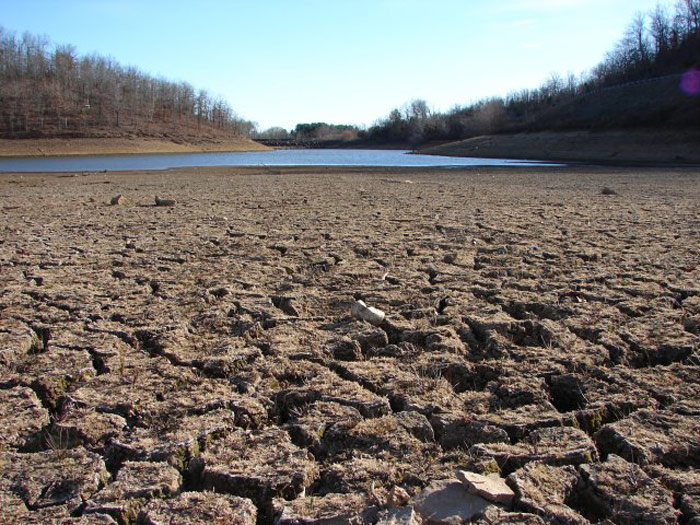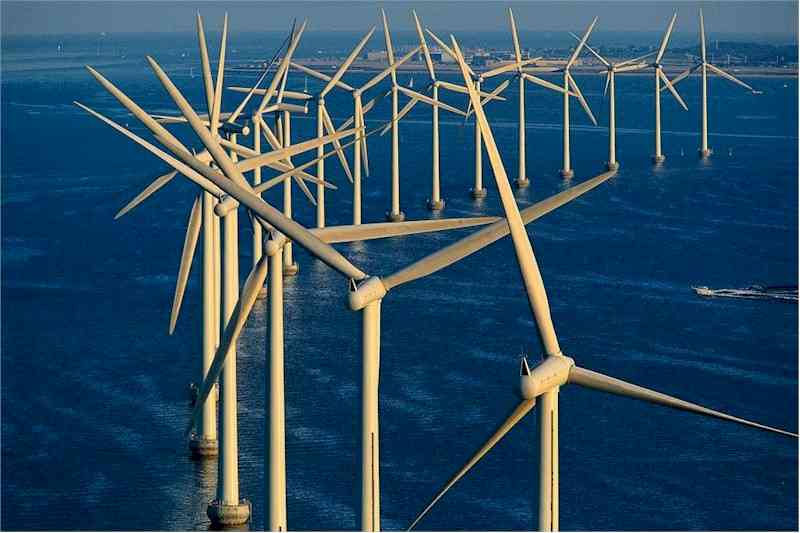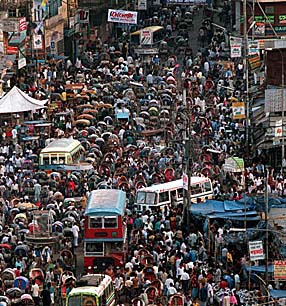Education and Population:
Since the beginning of the industrial revolution some 250 years ago, we have changed the character of the Earth; hence the increasing use among geologists of the term Anthropocene to follow the Holocene epoch. Although a complex mix of factors are responsible for such changes, population growth is without a doubt the most dominant - and continues to be. The human population rose from around one million 12,000 years ago to around one billion 250 years ago. Since then there has been an extraordinary acceleration from 2 billion in 1930 to 6 billion at the end of the century and now approaching 7 billion this month, with projections suggesting a further rise (albeit at a slower rate) to 9 billion by 2045 - scary thought if ask me!!! As hopefully you have gathered from the AS Population module and our current Development A2 module, education is critical if we hope to solve the issue of population growth and thereby dilute the effect of the appending impacts - especially education of women ( = the Girl Effect) as where emancipation of women is achieved, CBR drastically drops, as seen in most industralised countries where the fertility rate is below replacement level fertility. However, in reflection, this does causes problems in its own right - think ageing populations - but, with regards to the environment, is no where near as detrimentally damaging. There are also many other issues such as increasing population density and rapid urbanisation, especially in the developing world, which are all causing global societal problems with secondary economic, political and environmental impacts. To think that global education could attenuated many of these demographic issues is incredibe - if education is the answer, something which is perhaps possible to start to globally implement on the mentioned timescale, should it be our priority for the next 40 years?
Oceans:

I will try and keep this one short and simple as in truth I could probably write a few essays for you on this one! Approximately 70% of the globe is ocean and we are incredibly connected and consequently reliant on it in a multitude of ways. The oceans (although specifically the ocean circulation) are a critical mechanizism in the Earth's heat transfer system, feeds over 25% of our population and, as a result of its close coupling with the atmosphere, absorbs the heat generated by our unhealthy addiction to burning fossil fuels. Although the oceans may look very stable and unchanged over recent decades, they are not, and are increasingly vulnerable to anthropogenic forcing. With more photosynthesis occuring on the sea surface than anywhere else, many consider that the oceans breathe for the planet, with the oceans also being the largest carbon sink. This is all set to change, if our unsustainable environmental usage and consequentially accentuated global climate change continues to happen and once a significant change happens within the oceans (as is already happening with depletion of the oceans fisheries, toxic contamination of the sea by industrial runoff and plastic pollution and acidification etc.) it will pose a great threat to the health of the world's population.
Water:

 Water is a resource that many take for granted but it is a resource that we simply cannot survive without. Whilst we cannot live without it, when we are forced to drink that which is not clean it becomes lethal with diarrhoea the biggest killer of children in sub-Saharan Africa - preventable diarrhoea associated with dirty water and poor sanitation kills more children than Aids, malaria and TB combined.Water provokes other societal issues, especially for women and girls who bear the burden in developing countries of walking for miles in search of water whilst dirty water, poor sanitation and hygiene undermines maternal and child health and nutrition. This has knock on impacts on education, with 443 million schools lost due to water-related diseases, as girls, especially, are needed to find water thus cannot attend school. The World Health Organisation estimates that every $1 invested in water generates $8 in wider economic benefits. All of the above, are linked to water as a drinking resource, but it has wider uses to, in industry and agriculture. Agriculture is reliant on water supplies, with 70% of the globally available freshwater used for agriculture, making livelihoods even more reliant on water what with droughts and famines going hand in hand. It is a critical ingredient for industry - almost every manufacturing process needs water - whilst, it's intertwined with energy and not just through hydropower but thermal power stations need water for cooling and for the steam needed to turn turbines.
Water is a resource that many take for granted but it is a resource that we simply cannot survive without. Whilst we cannot live without it, when we are forced to drink that which is not clean it becomes lethal with diarrhoea the biggest killer of children in sub-Saharan Africa - preventable diarrhoea associated with dirty water and poor sanitation kills more children than Aids, malaria and TB combined.Water provokes other societal issues, especially for women and girls who bear the burden in developing countries of walking for miles in search of water whilst dirty water, poor sanitation and hygiene undermines maternal and child health and nutrition. This has knock on impacts on education, with 443 million schools lost due to water-related diseases, as girls, especially, are needed to find water thus cannot attend school. The World Health Organisation estimates that every $1 invested in water generates $8 in wider economic benefits. All of the above, are linked to water as a drinking resource, but it has wider uses to, in industry and agriculture. Agriculture is reliant on water supplies, with 70% of the globally available freshwater used for agriculture, making livelihoods even more reliant on water what with droughts and famines going hand in hand. It is a critical ingredient for industry - almost every manufacturing process needs water - whilst, it's intertwined with energy and not just through hydropower but thermal power stations need water for cooling and for the steam needed to turn turbines.Energy:

 I am guessing that this one is quite obvious - we humans are different to other species on Earth as not only do we gain energy from the things we eat but also from things that we don't eat. Our energy usage throughout our history has changed, as both a consequence of our development and as a factor allowing for our development. Currently, the issue of generating energy sustainably is a huge issue for the global community, with climate change accelerated by our insatiable hunger for burning fossil fuels, a desire that is only likely to increase as the global population continues to grow and countries continue to reach higher levels of development.
I am guessing that this one is quite obvious - we humans are different to other species on Earth as not only do we gain energy from the things we eat but also from things that we don't eat. Our energy usage throughout our history has changed, as both a consequence of our development and as a factor allowing for our development. Currently, the issue of generating energy sustainably is a huge issue for the global community, with climate change accelerated by our insatiable hunger for burning fossil fuels, a desire that is only likely to increase as the global population continues to grow and countries continue to reach higher levels of development. Food security:
 With water security and supplies under threat, whilst the population continues to expand, the challenge of feeding the world is a huge! This challenge is not going to be easy with our oil-reliant food system, our environment under stress from global climate change, distruption to water supplies and soil degradation/loss, weakening overturning in oceans, biodiversity loss, land use competition with people and animals needing space to live, space needed to grow food and people starting to utilise fertile land for energy production. Perhaps one of the greatest challenges is changing our attiutde towards food and waste as if every country fed its population to the extent that we do in the UK or the USA, we would need several planets just to grow food, with estimates that 40% of what is fit to eat we waste. If we have to feed 9 billion people by 2045 we cannot continue in the way that we are - especially if you factor in the likely future changes to agriculture patterns and productivity as a result of global climate change.
With water security and supplies under threat, whilst the population continues to expand, the challenge of feeding the world is a huge! This challenge is not going to be easy with our oil-reliant food system, our environment under stress from global climate change, distruption to water supplies and soil degradation/loss, weakening overturning in oceans, biodiversity loss, land use competition with people and animals needing space to live, space needed to grow food and people starting to utilise fertile land for energy production. Perhaps one of the greatest challenges is changing our attiutde towards food and waste as if every country fed its population to the extent that we do in the UK or the USA, we would need several planets just to grow food, with estimates that 40% of what is fit to eat we waste. If we have to feed 9 billion people by 2045 we cannot continue in the way that we are - especially if you factor in the likely future changes to agriculture patterns and productivity as a result of global climate change. What do I think? Well, I think that just the above mentioned are cause for concern and there are other factors that I am shocked did not get on the list. We place a lot of focus on how oil fuels fighting and whilst it cannot be argued that it doesn't, I think greater focus should be placed on possible/likely future fighting over resources that are essential to our survival - primarily water and food. If we are prepared to start wars over oil what would countries be prepared to do when the resource we are all after is one intrinsic our survival. This is worthy of a few blog posts on its own but I am reading a really interesting, if not slightly worrying, book at the moment called Climate Wars which covers this - a book review will be on its ways shortly, once I have finished reading it, but it is definetly worth a read for any Geographer! Anyway, back to the question, to be honest, I feel that all these factors (and many many more) are so closely interlinked that we cannot hope to untangle them and thus it is crucial that instead of trying to prioritise them we spend the time discussing how to prevent worse case scenairo's from occuring by developing mitigation techniques whilst also ways in which society can adapt to the inevitable consequences of the damage already caused by humankind. So, I suppose what I am trying to say is that I believe we need a more holistic approach to environmental change rather than trying to prioritise different aspects.
Anyway, the afore mentioned are the factors covered during Earthwatch, followed by my view for the need for a holistic approach but what do you think should be the top environmental priority for the next 40 years? Would you choose one of the above or do you think something is missing from the list? Let me know what you think!
I am a bit reluctant to tell you which of the above factors was voted to be the greatest environmental challenge and thus should be our priority over the next 40 years but I am guessing I probably should tell you and anyway, hopefully, by now you will have formed your own opinion. The chosen factor was Population and Education with the agruement for the desperate requirement to address expotential population growth and providing education for all, viewed as the most compelling. The speech given by Sir Crispin Tickell, on this topic, can be replayed here - do you agree with the factor chosen?

